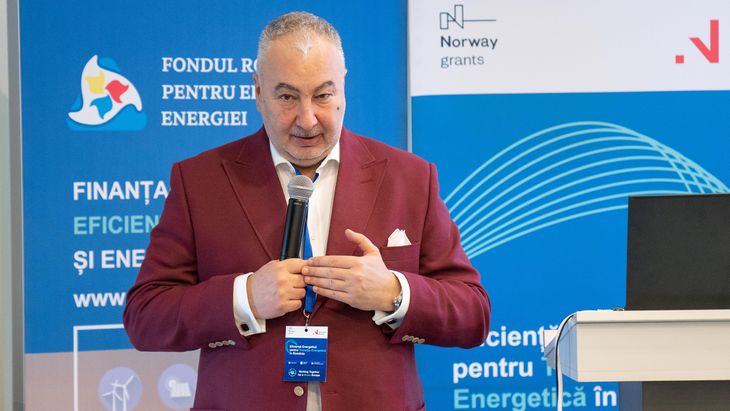The future of the energy sector lies in the decentralized production of energy, in the use of a mix of energy resources, as well as in the storage and use of carbon in industry, said Mihai David, president of the COGEN Romania association.
“Everyone talks about decarbonization, but less about decentralization. All ministries, when they talk about investments, think of ‚mausoleums’ [large production units, as were of those built in the first wave of Romania’s industrialization, e.n.]. The question is, can we not make energy in another way? The distributed energy of the future will be produced in small plants that help you be more efficient because you have lower technological losses because you transport the energy over shorter distances and put the plant as close as possible to the end user. The future is also about the energy mix and the capture and use of carbon in industrial applications,” said David, during the conference “Energy efficiency for the energy transition – Brașov”.
Traditionally, the majority of energy production in Romania is done in Dobrogea and the Oltenia area, although currently, the largest energy consumer is in Transylvania. For this reason, replacing the mines and coal-fired power plants in Oltenia with high-power natural gas power plants does not solve the problem of the high costs of transporting energy to final consumers.
“People are not really interested in decentralization. We’re closing down the surface mines in Oltenia but replacing them with gas-powered behemoths. We don’t think about distributing that power evenly in the territory. We could put a gas-based unit wherever we have a gas pipe. Why should we place thousands of megawatts in Oltenia, when most of our consumption is over the mountain?”, continued David.
From the perspective of costs, the expenses with CO2 certificates are significant for traditional energy producers, but a solution to their reduction could be represented by the construction of smaller power plants. In addition, these maintenance costs are also high, but new projects are starting to take them into account. Due to high maintenance costs, many power generation unit designs have had to operate modifications of the original designs.
“In recent years, the vast majority of operators change or restore part of the investment, bring new elements to increase efficiency and make various improvements because, on the design side, especially for new projects, there is a very low level of standardization which almost never takes into account what it means to use that facility in the very long term. Ten years ago nobody looked at maintenance. Lately, things are getting better also and in this segment which is extremely important,” said David.
The professional association COGEN Romania has 28 members, mainly producers and distributors of thermal energy in 20 cities in Romania.
The conference in Brașov was the first of a series of 5 scheduled by the Energynomics communication platform, the Romanian Fund for Energy Efficiency – FREE and the Directorate for Energy Efficiency within the Ministry of Energy. The project is financed by Norway Grants 2014-2021.
